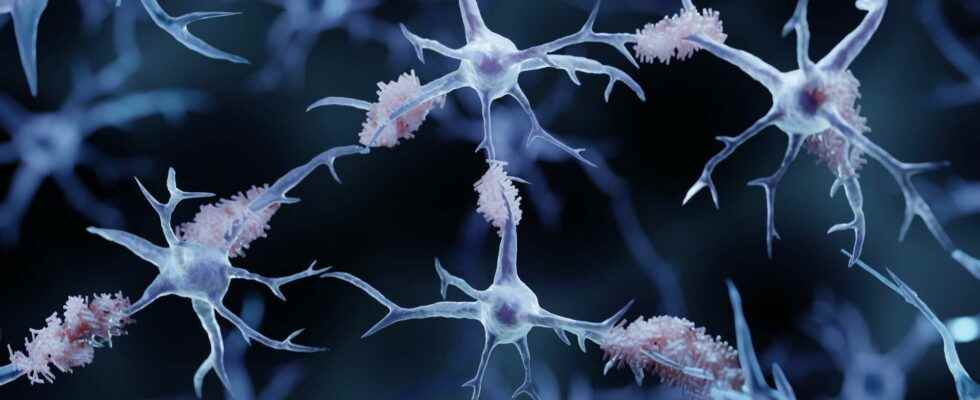You will also be interested
[EN VIDÉO] Soon a blood test to detect Alzheimer’s disease? A blood test to detect Alzheimer’s disease that could be done at your doctor’s office would soon be possible.
Can we anticipate Alzheimer’s disease thanks to a enzyme present in the blood? Researchers from the University of San Diego, California, have published in Cell Metabolism a study that indicates that the expression of embarrassed coding for phosphoglycerate dehydrogenase, abbreviated as PHGDH, is greater in adults with Alzheimer’s disease, even before the appearance of the first cognitive symptoms. PHGDH enables the body to biosynthesis serinean amino acid that plays an important role in the nervous system and cognition. If there is more PHGDH produced, one would expect more serine to be produced.
However, this result goes againsta previous study published in 2020 and carried out by French researchers, under the direction of Gilles Bonvento, director of a CEA laboratory which is interested in degenerative diseases. With his colleagues, he had shown that there was, on the contrary, a serine deficiency in the brain of mice with Alzheimer’s disease compared to healthy mice of the same age, and that a supply of this amino acid restored the animals’ lost cognitive abilities.
A publication, also in Cell Metabolismexplains that the new study does not call their work into question and that these conclusions should be taken with caution since the San Diego team did not use an experimental technique to quantify serine – only to ensure its presence – and therefore to confirm or not whether the overexpression of the PHGDH gene is linked to a higher production of serine in the brain.
Serine as a brain booster?
In A press releaseRiccardo Calandrelli, one of the first co-author of the May 2022 study, said that: Anyone looking to recommend or take serine to help with symptoms of Alzheimer’s disease should exercise caution. »
Serine, in the form of gummies, is the subject of a clinical test, currently in phase 2ato alleviate the cognitive disorders of patients suffering from an early form of Alzheimer’s. the Brain Chemistry Laba non-profit research institute in the United States, which is partly sponsoring the clinical trial, also reacted to these new results, pointing out that despite their statement about serine ” these researchers have not measured L-serine in the brain, nor carried out a clinical study “.
It is currently difficult to conclude on any positive or negative effect of serine in the context of Alzheimer’s disease. Only a robust clinical trial can decide. In the meantime, it is not advisable to take food supplements based on serine in the hope of treating a neurodegenerative disease as Alzheimer’s.
Right now, receive the Mag Futura for free by subscribing to our subscriptions!
You wish discover the advantages of our subscriptions?
It’s the right time to do it with our special offer: join the subscription “I participate in the life of Futura” (for a minimum of 3 months) and receive the Mag Futura at home* (worth €19)!
*Mag Futura is sent after the third month of registration.
Interested in what you just read?
